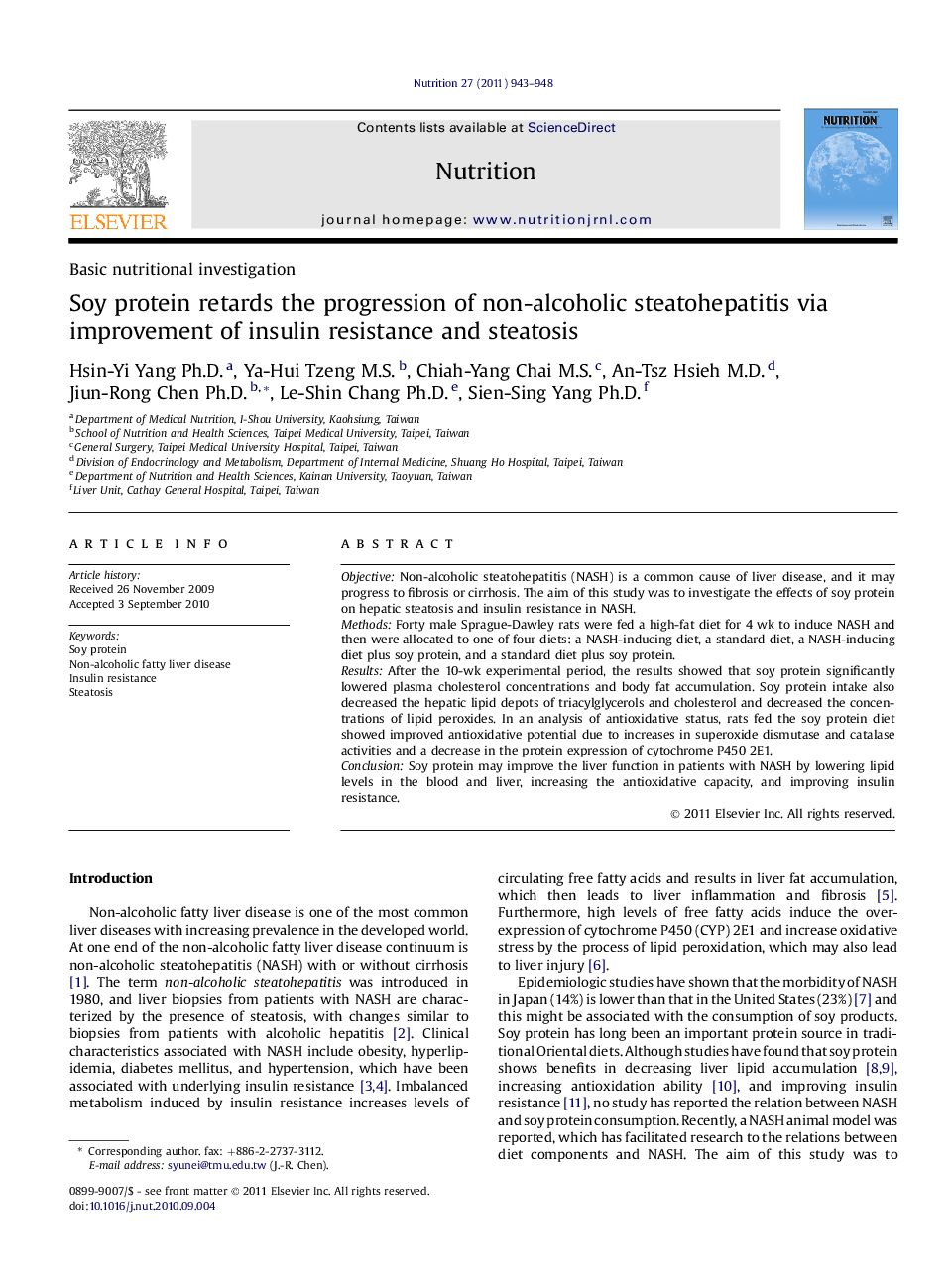| Article ID | Journal | Published Year | Pages | File Type |
|---|---|---|---|---|
| 3276659 | Nutrition | 2011 | 6 Pages |
ObjectiveNon-alcoholic steatohepatitis (NASH) is a common cause of liver disease, and it may progress to fibrosis or cirrhosis. The aim of this study was to investigate the effects of soy protein on hepatic steatosis and insulin resistance in NASH.MethodsForty male Sprague-Dawley rats were fed a high-fat diet for 4 wk to induce NASH and then were allocated to one of four diets: a NASH-inducing diet, a standard diet, a NASH-inducing diet plus soy protein, and a standard diet plus soy protein.ResultsAfter the 10-wk experimental period, the results showed that soy protein significantly lowered plasma cholesterol concentrations and body fat accumulation. Soy protein intake also decreased the hepatic lipid depots of triacylglycerols and cholesterol and decreased the concentrations of lipid peroxides. In an analysis of antioxidative status, rats fed the soy protein diet showed improved antioxidative potential due to increases in superoxide dismutase and catalase activities and a decrease in the protein expression of cytochrome P450 2E1.ConclusionSoy protein may improve the liver function in patients with NASH by lowering lipid levels in the blood and liver, increasing the antioxidative capacity, and improving insulin resistance.
